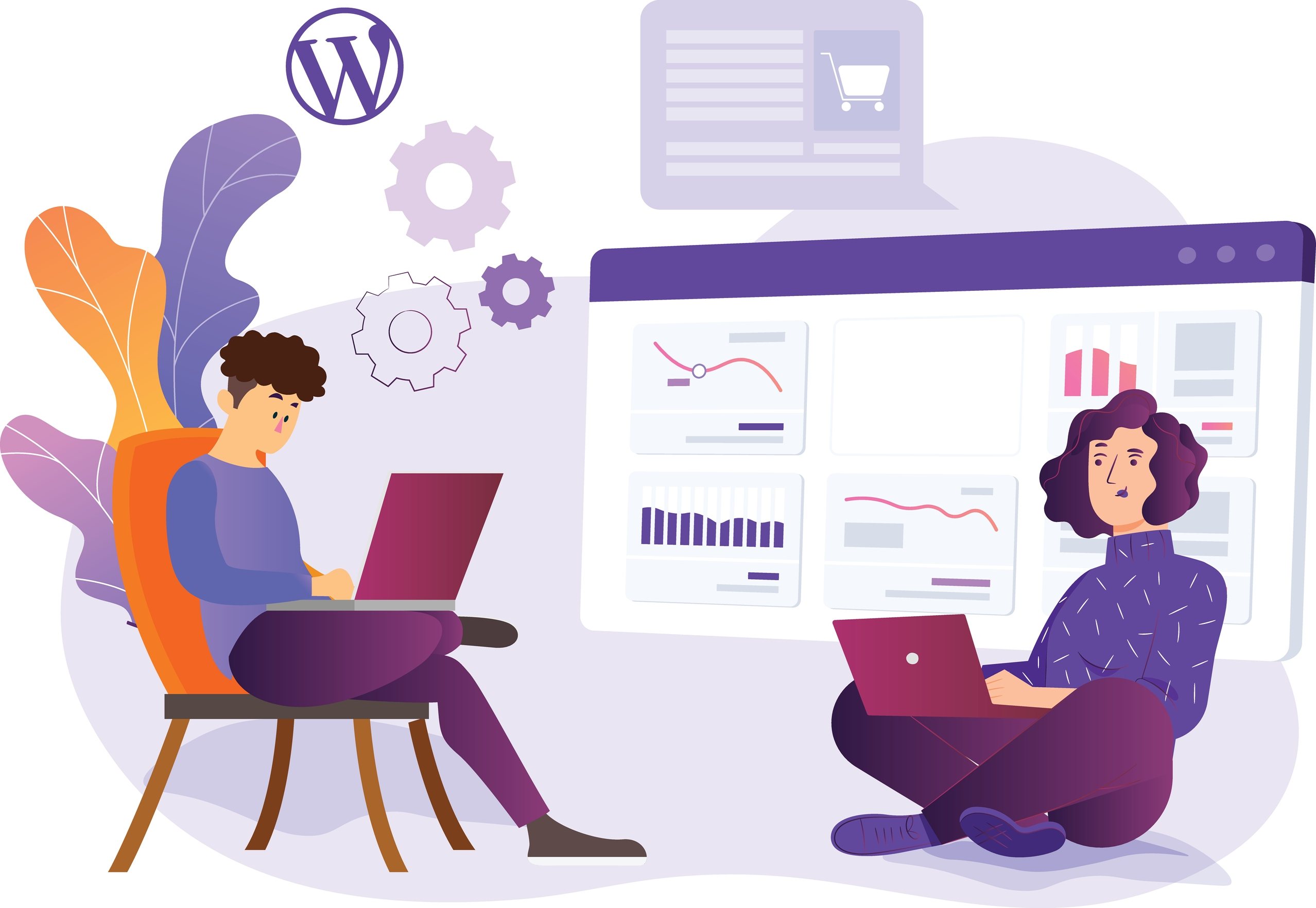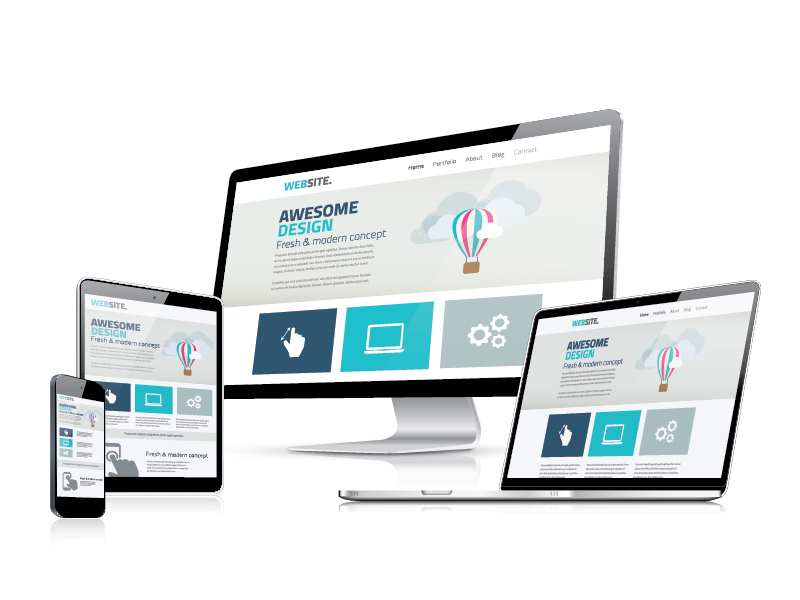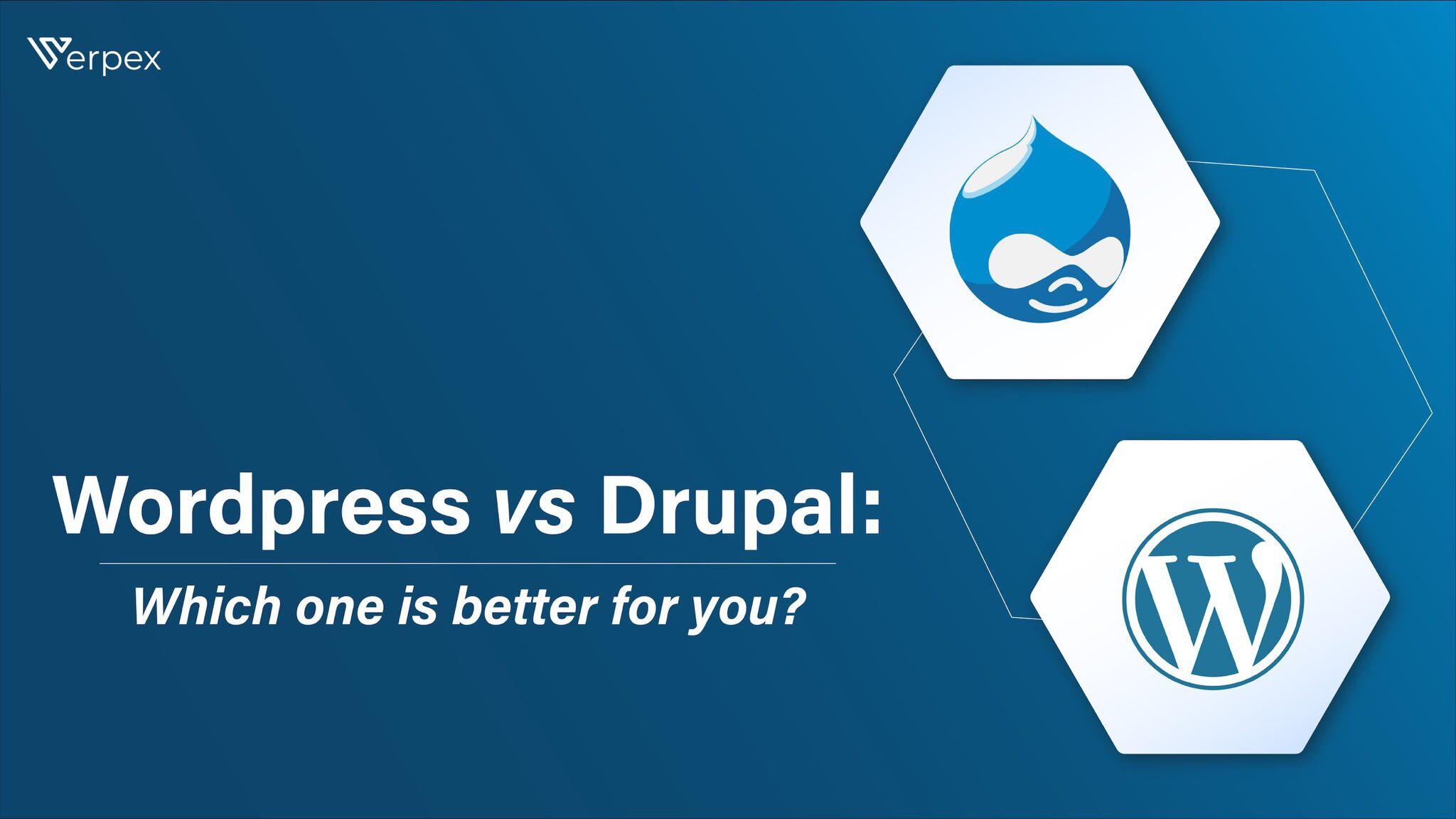Choosing a Content Management System for your website is an important and challenging decision. Do you go for the easy to use and beginner friendly platform that’s perfect for getting up and running, like WordPress? Or do you go for the more customizable and scalable platform that might be better in the long term, namely Drupal?
If you’re struggling to choose a Content Management System for your website, in this post we’ll try to help you with your decision by comparing two popular content management systems, WordPress and Drupal.
As you explore what is better for you, take the time to think about What CMS features are crucial for your needs? What products are available and what do they offer you? And which CMS best aligns with your business goals?
What is WordPress and Drupal?
Both platforms have a large following, with users ranging from individuals running personal blogs to organizations that run complicated websites with large amounts of content. With both of the platforms you will be able to avoid the time-consuming process of coding a website by hand, but they do have some differences between them.
WordPress is a CMS that allows its users to create a blog or website fast, with minimal programming. If you’re not worried about scalability or if you’re new to web development, WordPress is a great choice.
Drupal will give you a highly customized, advanced website, but it does have a steeper learning curve. Drupal is probably a good choice for someone who isn’t afraid to get their hands dirty or is a moderately experienced web developer.
WordPress vs. Drupal: Common Features
Free to use – Both platforms are free open-source platforms. Of course, no matter if you’re using Drupal or WordPress, you will need to factor in the cost of the web hosting.
Customization – WordPress and Drupal both offer free templates, themes, modules, and plugins to customize your website, as well as paid options.
Active online community – Both platforms have a big online community, with lots of groups, support forums, and comprehensive documentation. There are also a number ofpodcasts, video guides and tutorials that will teach you more about these two platforms.
WordPress vs. Drupal: Key Difference
Multilingual – Multilingual sites can be easily used with Drupal’s out of the box features.
API development projects – Generally speaking, Drupal has more robust features for complex projects.
Market share – Thanks to its popularity, WordPress has a wide range of plugins.
Theme market – WordPress has loads of themes that it offers on its theme market. Drupal has many themes too, but most of Drupal is designed for custom development.
WordPress vs. Drupal: Elaborated Comparison (Metrics one by one):

1. Popularity
Both of these platforms have grown over the years, but one has managed to get a big chunk of the websites and the content management system market.
WordPress was launched in 2003 and it’s without a doubt the world’s most popular CMS, powering over 40% of all websites.
Drupal was launched in 2000, meaning it’s been around longer, but it doesn’t compare to the popularity that WordPress has, since Drupal powers 1.4 of all websites.
2. Type
WordPress is known for being easy to maintain and manage for people that don’t have a developer background. This platform comes with lots of themes and plugins available and is great if you want a professional looking website in a matter of hours.
Drupal on the other hand, is more developer-centered. If you want to build a custom-operating and custom-looking website, Drupal would be an ideal solution.
3. Installation

WordPress is well known for its installation process that lasts five minutes. Most web hosting companies offer installation scripts, which you’ll have to open and follow the instructions. For those who decide to install the CMS manually, the process shouldn’t last much longer or be more complicated.
Drupal’s installation is also pretty straightforward. Just download the latest version of the platform on its official website and follow the installation guide. Even though it will take a few minutes more to install Drupal, the process itself should be just as easy.
4. Search engine optimization
Something that both sites do well and have in common is that they are both very SEO friendly. Both platforms can simplify SEO tasks, given the right configuration and modules. As long as you follow SEO norms and your content is in order, it doesn’t matter which platform you’re using. However, WordPress has less margin of error, because if the developer on Drupal sites makes a mistake, the site’s SEO can go terribly wrong.
However, WordPress has less margin of error, because if the developer on Drupal sites doesn’t know what they’re doing or makes a mistake, the site’s SEO can go terribly wrong.
5. Ease of use
As we previously mentioned, it takes just a few hours to have a fully functioning website that also looks good while using WordPress. People with no coding knowledge can grasp the concept of how to use this platform since its interface is really simple. Oppositely, Drupal’s interface is unintelligible for its users at first glance. Drupal isn’t the most user-friendly platform and it involves more of a learning curve. Building a site with Drupal is certainly more of a challenge than it is with WordPress.
6. Security

Having a platform with hundreds of millions of users and keeping it safe can be a pretty difficult task. While the core of WordPress is secure, WordPress heavily relies on plugins from third-parties, which make it prone to hacker attacks and malware.
In the meantime, one of the best-selling points of Drupal is its security, which is why it’s such a popular choice for government websites. Drupal constantly emphasizes security by regularly posting security issues on its official sites and its developers working hard at all times to patch up the system.
7. Content management
WordPress entire content management area is user-friendly, and after installing WordPress, you can have your first post published in just a few minutes. You can include CSS and HTML code if you need through the Text editor, while you can enjoy media and writing management with the Visual editor.
Drupal isn’t specifically made for blogging. The blogging module is just a part of the system, it's not something that Drupal was built for. Even though you can insert media files and use the text editor to write content, it won’t go as smoothly as it does with WordPress.
8. Themes & Templates
WordPress has lots of themes that will allow you to customize your website and create portfolio sites, news sites, and eCommerce stores.
Drupal also has lots of themes, but the number is smaller when compared to WordPress. Drupal is considered a better platform for supporting extensive customization, but you will need to have some coding knowledge, as we already mentioned.
In conclusion, WordPress has a larger base of themes, which will help you customize your websites without hiring a developer.
9. Plugins & Extensions

Both WordPress and Drupal have many plugins (Drupal calls them modules), but WordPress wins in terms of variety and availability of plugins. Drupal has over 39,000 modules, while WordPress has over 50,000 of them.
With WordPress, there are so many plugins, you can practically find everything you need for your website without any technical knowledge. Drupal’s selection of modules is also huge, but they aren’t as good as the WordPress counterparts.
10. Top websites using platforms
Popular websites that use WordPress are: The Walt Disney Company, MTV News, The New York Times, 10Web, BBC America, Sony Music, The Rolling Stones, TechCrunch, and the official Star Wars Blog.
Famous websites that use Drupal are: Entertainment Weekly. New York State, The City of London, Australian Government, NCAA, Taboola, Box, Tesla, Pinterest, Verizon, eBay, Twitter, Timex, McDonald’s Australia, Nokia, Harvard University, Stanford University, Charles Schwab, Lady Gaga, NASA, The Emmy Awards, and Eric Clapton.
11. Support
WordPress has a support section on its official websites, where you’ll find lots of documentation and user guides on how to use the platform, as well as a user forum with people who are ready to give you advice and exchange experience.
Drupal has a similar approach, with various user guides and tutorials, community portal, support and documentation.
WordPress is the winner of this round thanks to its popularity, making it easy to find support by its global community when you run into some issues.
WordPress Advantages and Disadvantages
Advantages of WordPress
Disadvantages of WordPress
Drupal Advantages and Disadvantages
Advantages of Drupal
Disadvantages of Drupal
How to Get Started with Your Favorite CMS
To get started with these platforms, you'll need a domain and web hosting. At Verpex, we offer both services. For Drupal, simply choose our Drupal hosting, run through the installation, explore the platform's interface, customize your theme, set up your pages, and begin posting content.
The process is similar for WordPress. Select our specialized hosting for WordPress, choose a domain name, design your site, add essential plugins, create pages, and start publishing content.
What Other CMS Are There?
WordPress vs Joomla
WordPress was initially created as a blog-focused platform, while Joomla was meant for portal-like-websites. WordPress is considered more beginner friendly, whereas Joomla requires more technical experience.


Drupal vs Joomla
Drupal is a platform for technical people who have some experience with coding. Joomla, on the other hand, is mainly used for social networking sites and eCommerce. The learning curve is quite steep, so be prepared to hire a developer or learn the inner workings of both platforms.
Summary
With WordPress you can easily create a functional and attractive website, and the platform itself is very easy and user-friendly for non-developers.
Drupal is great for projects that WordPress can’t handle that well, or for more complex websites. But in order to use all of Drupal’s advantages, you will need to know some coding, or at least be willing to learn it along the way.
Frequently Asked Questions
Can I migrate a WordPress site to Drupal?
Yes. There are also modules that can help you with migrating a website from WordPress to Drupal.
Where can I get help working with Drupal?
To get help on how to get started with Drupal, you can check out its support page where you will find people asking questions and comprehensive guides.
Is a website on WordPress safe?
Websites on WordPress are safe, however to avoid hacking keep your website up to date.
Why choose Verpex for WordPress?
As the leading CMS out there, we’ve made it our mission to offer the most comprehensive and streamlined WordPress solutions on the market. Backed by a responsive customer care team and reliable site enhancement tools, we ensure our users get the full WordPress value and support for a reasonable price.

I've been navigating the web hosting waters for years now. As the Chief Editor at Verpex, I team up with some awesome writers to dish out the good stuff on hosting. Got a Master's in Journalism, so I always have an eye out for quality. Whether you're just dipping your toes or you're a seasoned surfer, I'm here to make everything web hosting feel like a breeze
View all posts by Julia Lozanov



















